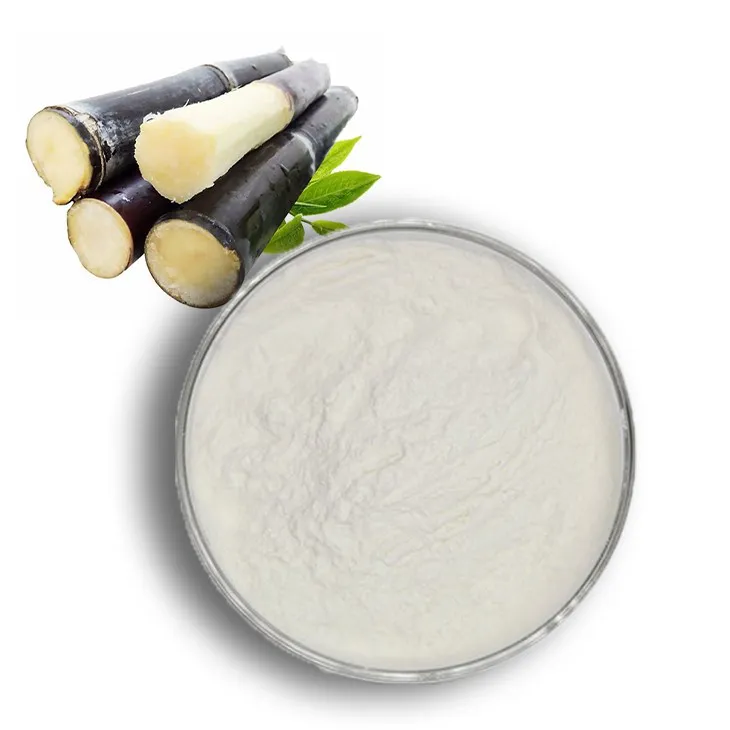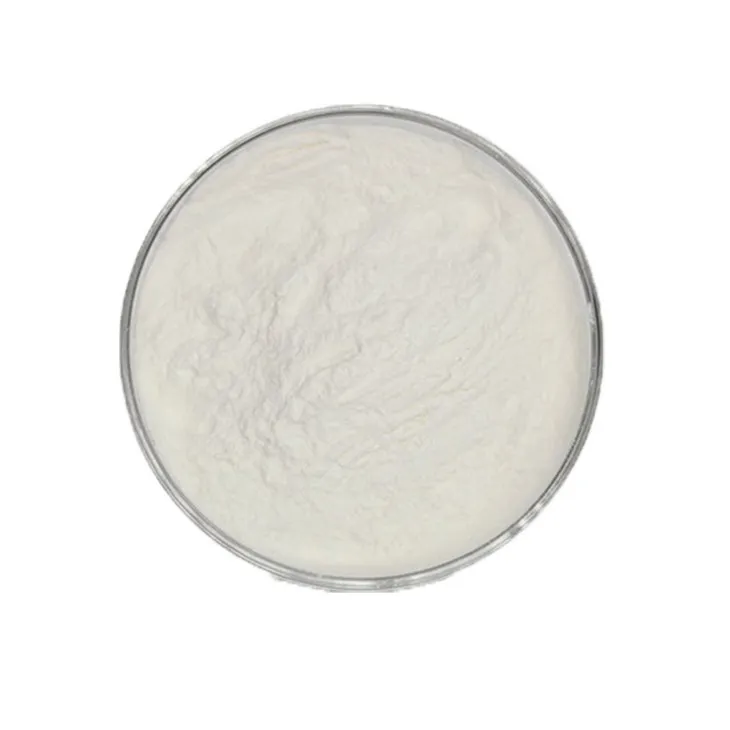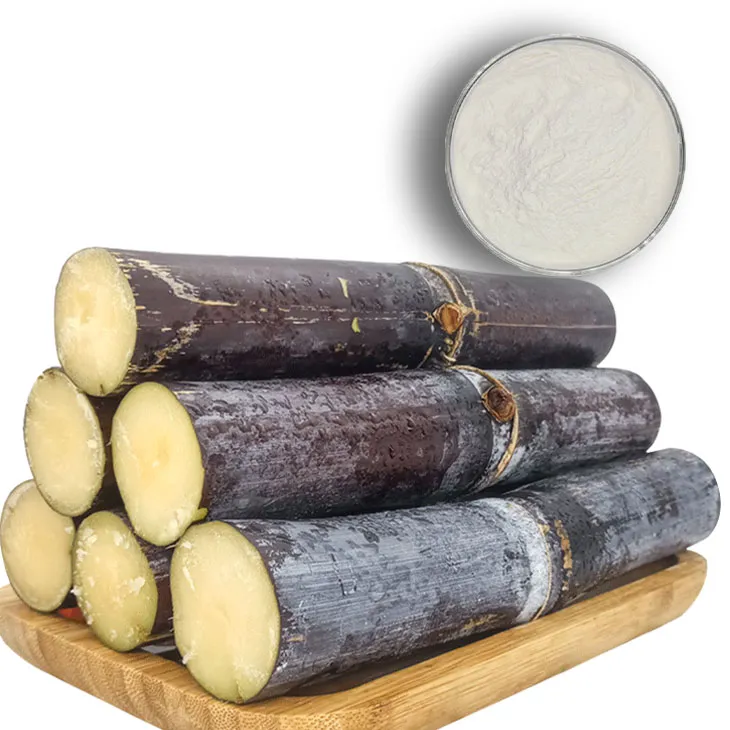- 0086-571-85302990
- sales@greenskybio.com
How can sugarcane extracts appeal to health - conscious consumers?
2024-12-10

1. Introduction
In recent years, there has been a significant shift in consumer preferences towards healthier options. Health - conscious consumers are increasingly seeking products that not only taste good but also offer various health benefits. Cane extract, which is derived from sugarcane, has emerged as a promising ingredient in this regard. It has the potential to attract these consumers due to its unique combination of nutritional and functional properties.

2. Nutritional Profile of Cane Extract
2.1 Antioxidants
Cane extract is rich in antioxidants. Antioxidants play a crucial role in the body by combating free radicals. Free radicals are unstable molecules that can cause damage to cells, leading to various health problems such as aging, heart disease, and cancer. The antioxidants present in cane extract, such as phenolic compounds and flavonoids, help to neutralize these free radicals, thereby promoting overall well - being.
Studies have shown that the antioxidant activity of cane extract is comparable to that of other well - known antioxidant - rich foods. For example, a research study found that the phenolic content in cane extract was able to scavenge free radicals effectively in vitro. This makes cane extract a valuable addition to a diet focused on preventing oxidative stress - related diseases.
2.2 Other Nutrients
In addition to antioxidants, cane extract also contains other important nutrients. It is a source of minerals such as potassium, which is essential for maintaining proper heart function and regulating blood pressure. Potassium helps to counteract the effects of sodium in the body, reducing the risk of hypertension.
Cane extract also contains small amounts of vitamins, including vitamin C. Vitamin C is an antioxidant in its own right and is also involved in collagen synthesis, which is important for healthy skin, bones, and connective tissues. Although the vitamin C content in cane extract may not be as high as in some fruits, it still contributes to the overall nutritional value of the product.

3. Natural Sweetening Properties
One of the main attractions of cane extract for health - conscious consumers is its natural sweetening properties. In a world where there is growing concern about the use of artificial sweeteners, cane extract offers a natural alternative.
3.1 Comparison with Artificial Sweeteners
Artificial sweeteners have been associated with various health risks, although the evidence is still debated. Some studies have suggested that certain artificial sweeteners may disrupt the gut microbiota, affect metabolism, or even have potential carcinogenic effects. In contrast, cane extract provides a natural source of sweetness without these potential risks.
Moreover, many consumers prefer the taste of natural sweeteners over artificial ones. Cane extract has a unique, pleasant sweetness that can enhance the flavor of various products without the artificial aftertaste often associated with synthetic sweeteners.
3.2 Use in Different Products
Cane extract can be used in a wide range of products as a natural sweetener. In the food industry, it can be added to beverages such as juices, smoothies, and teas, providing a natural and healthy sweetening option. It can also be used in baked goods, cereals, and confectionery products, replacing or reducing the amount of refined sugar used.
In the cosmetics and personal care industry, cane extract can be used in products such as lip balms and lotions. Its natural sweetening property can add a pleasant aroma and taste to these products, while also potentially providing some of the nutritional benefits associated with its use.

4. Health Benefits for Digestion and Immunity
4.1 Digestion
There is evidence to suggest that cane extract may have benefits for digestion. Some of the components in cane extract, such as dietary fiber, can help to promote regular bowel movements. Fiber adds bulk to the stool, making it easier to pass through the digestive tract and preventing constipation.
Furthermore, cane extract may also have prebiotic properties. Prebiotics are substances that stimulate the growth and activity of beneficial bacteria in the gut. A healthy gut microbiota is essential for proper digestion, nutrient absorption, and overall gut health. By promoting the growth of beneficial bacteria, cane extract may contribute to a more balanced gut ecosystem.
4.2 Immunity
The relationship between cane extract and the immune system is also an area of interest. The antioxidants present in cane extract may help to strengthen the immune system by protecting immune cells from oxidative damage. Immune cells are constantly exposed to free radicals during their normal function, and antioxidant - rich substances like cane extract can help to maintain their integrity and function.
Additionally, a healthy gut microbiota, which may be promoted by cane extract as mentioned earlier, is also linked to a stronger immune system. The gut is home to a large portion of the body's immune cells, and a balanced gut microbiota can help to train and regulate the immune response.

5. Marketing and Communication Strategies
To appeal to health - conscious consumers, it is important to effectively market and communicate the benefits of cane extract. Here are some strategies that can be employed:
5.1 Clear Labeling
Product labels should clearly indicate the presence of cane extract and highlight its health benefits. This can include statements such as "Rich in antioxidants from cane extract" or "Natural sweetening with cane extract." Clear and accurate labeling helps consumers make informed choices and understand the value of the product.
5.2 Educational Campaigns
Companies can conduct educational campaigns to raise awareness about cane extract. This can be done through various channels such as social media, blogs, and in - store promotions. Educational content can include information about the nutritional profile of cane extract, its health benefits, and how it compares to other ingredients. For example, a blog post could explain the difference between cane extract and artificial sweeteners in terms of health risks and taste.
5.3 Product Innovation
Continuing to innovate with products containing cane extract can also attract health - conscious consumers. This can involve creating new product formulations that combine cane extract with other healthy ingredients, such as superfruits or probiotics. For example, a new beverage could be developed that contains cane extract, acai berries, and live probiotic cultures, targeting consumers who are interested in both digestive health and antioxidant - rich products.
6. Challenges and Considerations
6.1 Processing and Preservation
One of the challenges in using cane extract is ensuring proper processing and preservation. The extraction process needs to be carefully controlled to preserve the nutritional and functional properties of the extract. Improper processing can lead to a loss of antioxidants or other beneficial components.
Preservation is also important to prevent spoilage and maintain the quality of products containing cane extract. This may require the use of appropriate packaging materials and storage conditions, which can add to the cost of production.
6.2 Cost
The cost of cane extract can be a factor in its widespread adoption. Compared to some other sweetening agents, cane extract may be more expensive to produce. This can limit its use in some mass - market products. However, as demand for healthier ingredients increases, economies of scale may help to reduce the cost over time.
6.3 Allergies and Sensitivities
Although rare, some individuals may have allergies or sensitivities to cane extract. It is important to identify and label any potential allergens clearly. This includes not only the cane extract itself but also any other ingredients that may be used in conjunction with it during processing.
7. Conclusion
Cane extract has great potential to appeal to health - conscious consumers. Its rich nutritional profile, natural sweetening properties, and potential health benefits for digestion and immunity make it an attractive ingredient. However, to fully realize its potential, challenges such as processing, cost, and allergen management need to be addressed. Through effective marketing and communication strategies, and continued product innovation, cane extract can become a more widely recognized and utilized ingredient in the pursuit of healthier products.
FAQ:
What are the main nutrients in Sugarcane Extracts?
Sugarcane Extracts are rich in nutrients such as antioxidants. These antioxidants play a crucial role in combating free radicals in the body, which helps in promoting overall health and well - being.
How does the natural sweetening property of Sugarcane Extracts compare to artificial sweeteners?
The natural sweetening property of sugarcane extracts makes it a more desirable option compared to artificial sweeteners. Artificial sweeteners are often chemically synthesized, while sugarcane extracts offer a natural source of sweetness. This can be more appealing to health - conscious consumers who prefer to avoid artificial additives in their diet.
What are the potential benefits of sugarcane extracts for digestion?
Studies have suggested potential benefits of sugarcane extracts for digestion. However, the exact mechanisms are still being researched. It is believed that certain compounds in sugarcane extracts may interact with the digestive system in a positive way, perhaps helping in the breakdown of food or improving gut health, but more research is needed to fully understand these effects.
How do sugarcane extracts boost immunity?
While the exact ways in which sugarcane extracts boost immunity are not fully understood, it is thought that the nutrients present, such as antioxidants, may play a role. Antioxidants can help the body's cells function better and may contribute to a stronger immune response. However, more in - depth research is required to clarify the specific impact on immunity.
Are there any side effects of consuming sugarcane extracts?
Generally, when consumed in moderation, sugarcane extracts are considered safe. However, like any food or ingredient, excessive consumption may lead to potential issues. For example, since it contains natural sugars, overconsumption could contribute to high blood sugar levels in some individuals. Also, some people may have an allergic reaction to it, although this is relatively rare.
Related literature
- The Nutritional Composition of Sugarcane Extracts and Their Impact on Health"
- "Sugarcane Extracts: A Natural Alternative to Artificial Sweeteners and Their Health Benefits"
- "Investigating the Role of Sugarcane Extracts in Digestion and Immunity"
- ▶ Hesperidin
- ▶ Citrus Bioflavonoids
- ▶ Plant Extract
- ▶ lycopene
- ▶ Diosmin
- ▶ Grape seed extract
- ▶ Sea buckthorn Juice Powder
- ▶ Fruit Juice Powder
- ▶ Hops Extract
- ▶ Artichoke Extract
- ▶ Mushroom extract
- ▶ Astaxanthin
- ▶ Green Tea Extract
- ▶ Curcumin
- ▶ Horse Chestnut Extract
- ▶ Other Product
- ▶ Boswellia Serrata Extract
- ▶ Resveratrol
- ▶ Marigold Extract
- ▶ Grape Leaf Extract
- ▶ New Product
- ▶ Aminolevulinic acid
- ▶ Cranberry Extract
- ▶ Red Yeast Rice
- ▶ Red Wine Extract
-
Buckthorn bark extract
2024-12-10
-
Stevia Extract
2024-12-10
-
Yam Extract
2024-12-10
-
Maitake Mushroom Extract
2024-12-10
-
Tongkat Ali Extract Powder
2024-12-10
-
Horse Chestnut Extract
2024-12-10
-
Saw Palmetto Extract
2024-12-10
-
Wheat Germ Extract
2024-12-10
-
Dan Shen Root Extract/Salvia Root Extract
2024-12-10
-
Eyebright Extract
2024-12-10





















